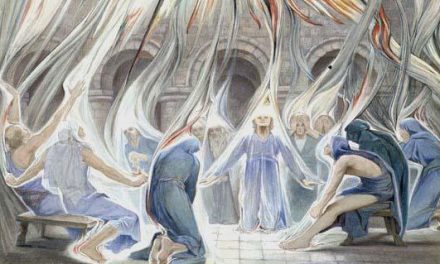Zechariah 9:9-10
Psalm 145
Romans 8:9, 11-13
Matthew 11:25-30
Having come off of the Easter season and a series of Feast Days (Pentecost, Trinity Sunday, Corpus Christi, Saints Peter and Paul), there’s something comforting about returning to the green vestments of Ordinary Time! After all this partying, what are the readings speaking to us this week (even as we continue partying with the ‘secular’ feast day of the Fourth of July)? At first glance, these “ordinary” readings do not seem to hold much that relates to moral theology. But as I have written previously, the early church and medieval theologians read Scripture as if it contained more than just the plain or the literal level of meaning. For them, Scripture contains two senses: a literal and spiritual sense. The spiritual sense is understood as an extension of that which is contained within the literal, but it takes us more deeply into the layers of meaning that God wishes to communicate through every single syllable or letter of Revelation.
The spiritual sense can be further divided into the ways in which the text speaks to (1) the reality of Christ, (2) morality, and (3) mystical contemplation of the divine presence in the Word and in all things. At the literal level, Zechariah is clearly writing about the Messianic hopes of the Israelites, who expected the return of a king in the line of David to restore Israel to its former glory as God’s chosen people. And of course, the historical Jesus whom we meet in Matthew and of whom Paul writes in his letter to the Romans, fulfills these expectations for Christians (#1 above).
Neither Paul’s words in Romans nor Jesus’ words in Matthew seem to contain what we would typically think of as a moral lesson. These texts are therefore a perfect example for considering how any phrase or word from Scripture contains each of the senses mentioned above. Without denigrating the literal level of these texts, perhaps Paul’s distinction between the flesh and the spirit might contain some insights into the moral sense of these readings (#2 above).
One way to interpret what Paul refers to as the “flesh” could be the kind of external conformity to rules or expectations that is often associated with the early stages of the moral development of the person. At this level (of the flesh), morality is a set of rules, obligations or expectations that we unconsciously take up from our parents, family, culture, church, religious authorities, etc. Although this is typically associated with childhood, many adults remain in this stage of morality (either by continuing to live according to external standards, or, ironically, by leaving all external sources of morality – particularly authority and the church – behind entirely). Whether one remains rigidly fixed upon external obligation or entirely rejects the potentially enriching sources of dialogue within a tradition, it is quite difficult to move into a truly adult development of a healthy, mature, and internal sense of morality. But this is precisely what the moral sense of Scripture invites us to do. It holds up a mirror to ourselves so that we can consider our own ways of behaving according to “the flesh,” according to someone else’s standards and expectations.
A deeper, more internalized, and more meaningful sense of morality emerges from what Paul refers to as the Spirit of Christ. This is analogous to what moral theologians refer to as those virtues and dispositions that are infused into us by the Holy Spirit. Typically, these are faith, hope, and love (see 1 Cor 13:13), but they also include the transformation of our everyday behaviors, attitudes, and dispositions. As one engages in this deeper, “spiritual” kind of morality, one is more deeply in touch with those values that are rooted in a relationship with Christ and from which practical wisdom emerges. Here the deeper levels of the moral sense of Scripture start to move toward the kind of mystical contemplation in which the divine presence more fully “dwells in you” (Rom 8:9). What emerges from this openness to the divine indwelling through the spiritual senses of the Scriptures is a transformation from the inside outward. Now the divine Spirit within “will give life to your mortal bodies also.” In other words, our ways of thinking, judging, choosing, and acting are transformed by entering into these deeper sense of God’s word. The morality of the flesh has been transformed into a morality of the spirit.
The beautiful thing about this morality of the spirit is that, although it is deeper and more demanding, it merges from our sense of ourselves as already in loving union with Christ. Therefore, spiritual morality is, as Jesus puts it in the reading from Matthew, an easy burden, a light yoke. This is the kind of transformation that a contemplative reading of the Scriptures can provide, and it is ultimately the only kind of transformation that will sustain a lifelong fidelity to the values and ideals of the Gospel.




